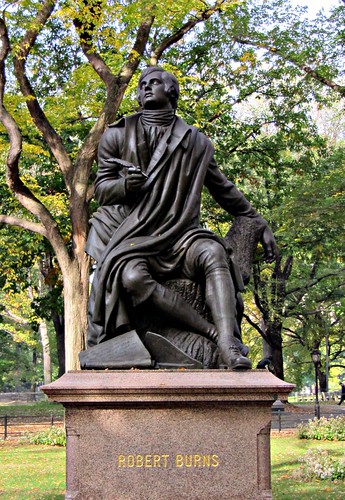And so now we come to ae, the most controversial word we’ve yet seen. Or so it seems to me. The controversy springs from a fundamental linguistic question: Is Scots a dialect or a language? If a dialect, than sure fine, ae is a word in the English language. It means simply “one,” and is perhaps most famously deployed in the great poem by Robert Burns, “Ae Fond Kiss”:
Ae fond kiss, and then we sever!
Ae fareweel, alas, for ever!
But, if Scots is not a dialect, if Scots is its own language, then ae is a foreign word — not English — and thus would have no place on this list.
Pride and politics makes the question even stickier. The notion of a language generally commands greater respect than the notion of a dialect. I’d expect that passionate advocates of the Scots revival think of it as a language and want others to regard it as such.
For what it’s worth, my spellchecker doesn’t recognize it.
Of course, this is a question that has been debated for ages, and my very conceptions of dialect and language are hopelessly naïve. Suffice to say, ae is on the official two-letter word lists that count, for people who care about such things, which is to say players of Scrabble and Words with Friends.
Can you make words from ae? Yes you can, but most of them look strange to me: gae, hae, kae, mae, nae, sae, tae and wae. My first hunch was these were all Scots as well, and perhaps they are.
- gae = go
- hae = have
- kae = jackdaw
- mae = may?
- nae = no, not
- sae = so
- tae = to
- wae = woe
I found all these words in The Scots Tongue by Girvan McKay. Some may have other meanings that are not Scots-related, but if so they are pretty obscure. Which is what makes them such good words to know.
Strangely enough, ae doesn’t take a letters on the rear, not even s. I call this strange because it’s the first such word in this list, but more so because I have long considered aes a valid English word. Gene Wolfe uses it for a denomination of coin in The Book of the New Sun. Turns out it’s the Latin word for bronze, and isn’t generally listed in English dictionaries.
Statue of Robert Burn / Victhor Viking / http://creativecommons.org/licenses/by-nc-sa/2.0/
Discover more from b.rox
Subscribe to get the latest posts sent to your email.

I will not go into the grammar section. Robert Burns would write about a bit. I think is very good poetry. You should describe the people. Less known. Hungarian translation is also available with us.
http://www.konyv-konyvek.hu/skot_balladak_robert_burns_versei_burns_robert